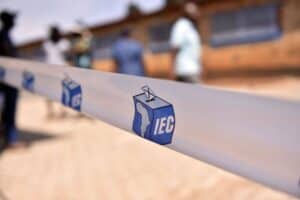Independent candidates can now run in next year's election with just 1 000 signatures, not 15 000. The limitation was not justifiable.

Independent candidates now only need 1 000 signatures instead of up to 15 000 in order to contest in next year’s general election.
This comes as the Constitutional Court (ConCourt) decided to scrap the requirement for signatures of 15% of the people living in the region they are contesting in order to be eligible to stand.
The judgment was handed down yesterday by Justice Nonkosi Mhlantla, accompanied by Judge Jody Kollapen. One South Africa Movement (OSA) and the Independent Candidates Association (ICA) had lodged challenges to the Electoral Amendment Act’s constitutionality, pointing out the Act did not treat independent candidates and parties equally.
OSA’s challenge dealt with the number of signatures independent candidates and new parties required to register in elections and indicated the requirement was unreasonably high, “impermissible and arbitrary”.
In its founding affidavit, OSA said it would demonstrate the 15% signature requirement posed a barrier for independent candidates.
ALSO READ: Slow electoral law process could impact announcement of election date
Kollapen said the signature requirement constitutes a limitation of the applicant’s right to freedom of association, freedom to make political choices and freedom to stand and hold public office if elected. He said elections were about more than just the numbers.
“The limitation is not justifiable. The purpose of the limitation is of low importance, wherein a contestation requirement has never existed in previous elections,” he said.
Chief Justice Raymond Zondo had found the signature requirement was constitutional. He said OSA did not substantiate why the 15% signature requirement was a barrier or why it was unfair.
Kollapen said the ruling was suspended for 24 months to give parliament the opportunity to remedy the constitutional defects giving rise to the constitutional invalidity in the Electoral Amendment Act.
RELATED: People ‘should definitely be worried’ about Electoral Amendment Bill – analysts
Build One South Africa (Bosa) spokesperson Roger Solomons said they welcomed the decision. “It is now vital that the Electoral Commission of South Africa (IEC) moves with speed and vigour to establish the framework in which new entrants standing for election must register and contest,” he said.
“We wish to restate the process to bring about a new electoral system was manipulated by the ANC and supporting political parties in parliament.
“A strong, open system would weaken their power and, thus, all had a vested interest in ensuring as little change as possible was effected.”
The ConCourt ruled the current Electoral Act passed by parliament this year met constitutional muster. OSA and ICA approached the ConCourt after the legislation was signed into law by President Cyril Ramaphosa in April.
READ MORE: New Electoral Act ‘taking away power from people’
In their papers, ICA requested the ConCourt to decide on whether it was irrational and inconsistent with the constitution for independent candidates to only be allowed to contest 200 of the 400 seats in the National Assembly.
ICA wanted to be allowed to contest at least 350 seats but the unanimous judgment, handed down by Mhlantla, said the ConCourt held that the circumstances of the case were exceptional and raised important issues about the fairness of the 2024 election and, therefore, direct access should be granted.
Mhlantla, however, pointed out that the apex court cannot interfere with a decision “simply because it disagrees with it”.
NOW READ: 2024 elections: IEC looking to counter ‘threat’ of fake news






